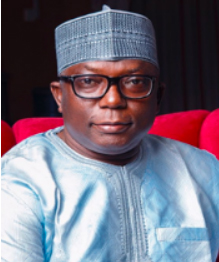
Salisu Dahiru, National Project Coordinator
The effort to mitigate adverse effects of soil and land degradation in targeted watershed for environmental sustainability in the country, envisioned and created the Nigeria Erosion and Watershed Management Project (NEWMAP). Soil Erosion and degradation is one of the most serious environmental and public health problems facing human society today. Humans obtain more than 99.7% of their food from the land and less than 0.3% from the oceans and other aquatic ecosystems. However the land that holds the key to all that bothers on the livelihood of man have over the years been eroded and damaged by Erosion and other forms of Land degradation in the south- east with severe consequences on the people, while the combined forces of flooding and severe effects of climate change have contributed largely to the issue of deforestation and desertification in the North.
The effects of all these activities as well as human factors continue to wreak havoc on life and property, with a heavy devastating effect on the livelihood and economy
The emergence of the Nigeria Erosion and watershed Management Project NEWMAP therefore was In line with the Nigeria strategic response to the challenges and the emerging Land degradation and environmental insecurity. The Project, commenced in the summer of 2013 initially in seven States: Abia, Anambra, Cross River, Ebonyi, Edo Enugu and Imo known as the first mover states, in September 2015 additional 7 states; Delta, Gombe, Kogi, Kano, Plateau, Oyo and Sokoto joined the project having met the necessary selection criteria. In 2016 another third phase of states joined the project; Akwa Ibom, Borno, Katsina, Nasarawa, and Niger, States; thus making a total number of 19 NEWMAP Project states. The project now currently partners with 22 states
Acceptability and ownership by relevant stakeholders has been very supportive and tremendously encouraging. The effectiveness of the project has been adjudged very successful.The project achievements in its short existence are significantly evident across the components.
Whilst land deterioration and degradation is on the increase across sub-Saharan Africa, managing these trend have become a nightmare to many African governments; the battle ranges from the adaptable protective measures to arrest the degradation and what to do to ensure sustainable environmental behaviours of the citizenry, in order to stem the increase. if therefore we agree with the statement credited to Myers (1992) that efforts to stop further deterioration are never late, the Nigeria response could then be described as timely coming when all past efforts have failed to yield the required purpose. Her current sustainable mitigation strategies – a combination of natural and civil works, alternative livelihood combined with a total watershed approach may now be a good recipe for like situations across the continent. Our Portal is very open for those who seek for knowledge and information on the NEWMAP project.